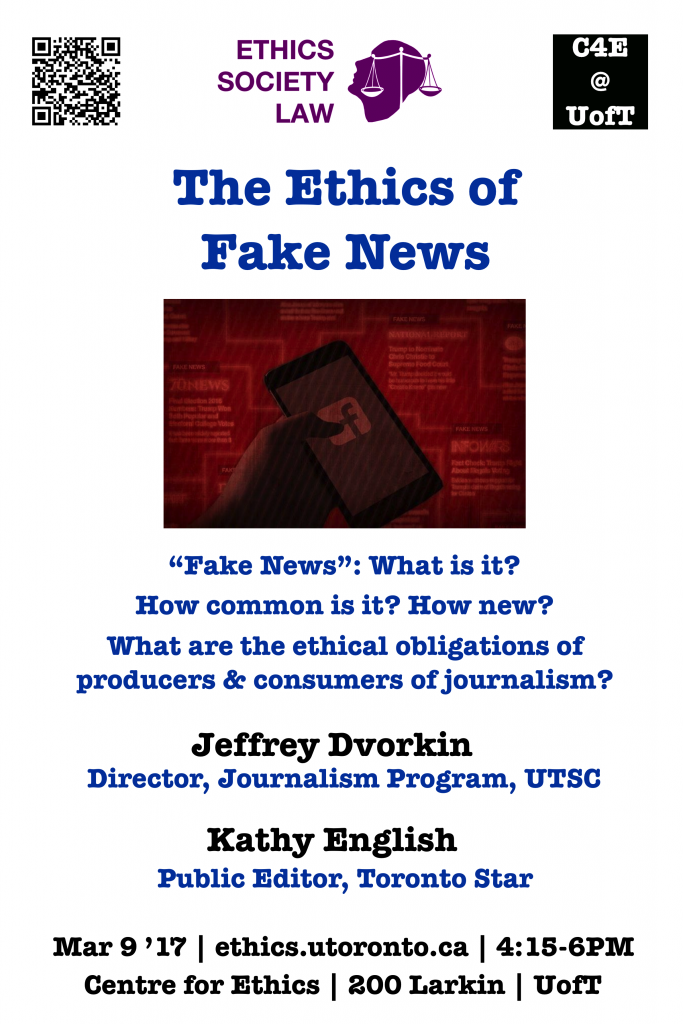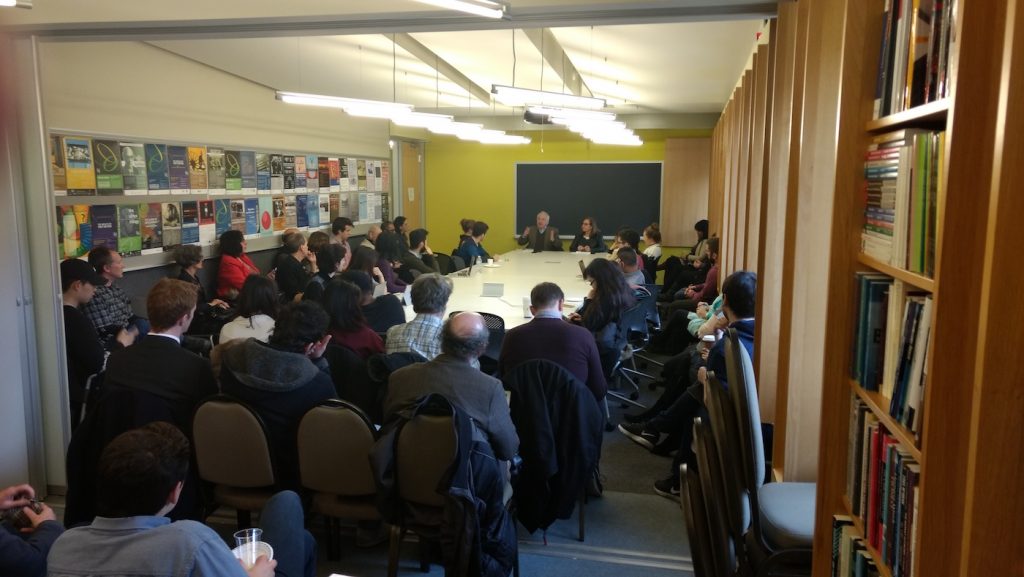
 In March 2017, UofT’s Ethics, Society, and Law Students’ Association in collaboration with the Centre for Ethics hosted an academic panel discussion on The Ethics of Fake News. We are living in what is repeatedly referred to as the post-truth era, witnessing a loss of trust in traditional media outlets, and social media accelerating the circulation of false, unverified, and exaggerated information. The term “fake news” itself has become deeply controversial as its use has devolved from a critique of the proliferation of false stories and conspiracy theories, to an attack on the legitimacy of political opposition; even the pervasiveness of the problem remains contentious. This discussion will explore the ethical obligations that apply to both producers and consumers of journalism, recognizing that inflammatory distortion of facts is not a partisan issue, but a threat to the function of a free, open, and critical press.
In March 2017, UofT’s Ethics, Society, and Law Students’ Association in collaboration with the Centre for Ethics hosted an academic panel discussion on The Ethics of Fake News. We are living in what is repeatedly referred to as the post-truth era, witnessing a loss of trust in traditional media outlets, and social media accelerating the circulation of false, unverified, and exaggerated information. The term “fake news” itself has become deeply controversial as its use has devolved from a critique of the proliferation of false stories and conspiracy theories, to an attack on the legitimacy of political opposition; even the pervasiveness of the problem remains contentious. This discussion will explore the ethical obligations that apply to both producers and consumers of journalism, recognizing that inflammatory distortion of facts is not a partisan issue, but a threat to the function of a free, open, and critical press.
Jeffrey Dvorkin, lecturer and director of the Journalism Program at UTSC, and also a board member of the Canadian Journalism foundation, is a frequent commentator on ethics of media in the digital age and the future of the journalism industry.
Kathy English, the public editor of the Toronto Star, and a member of the Canadian Journalism Association Ethics Panel and the executive committee of the Canadian Journalism foundation brings a unique perspective through her direct experience of upholding and enforcing journalistic ethics and responsibility.
